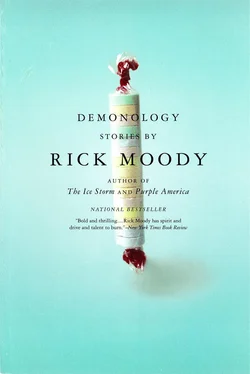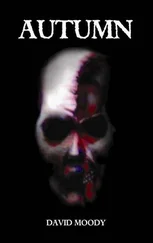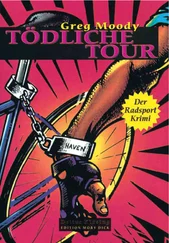Well aware is your storyteller of his dependence on conjuring and mysticisms in this song, yet elegance and divine symmetry demand that he should now admit that the giant performed next as any gentleman of honor would under like circumstances, viz., he too made an oath of devilish properties. Said he, over the sleeping body of the queen, now laid alongside a rutted winding track which snaked into the town, and here I must profess again that the poem is of his own composition as I myself prefer blank verse, Witches, warlocks of the night, restore this sleeper to her sight, make him next she sees be hers, the giant here who offers prayers. And with that he reclined beside her to await her waking and subsequent veneration of himself. Yet he had squeezed her so tightly, that she didn’t wake, and didn’t wake, and didn’t wake, and didn’t wake, days commenced to resemble fortnights which soon resembled seasons, and she did not wake, and no traveler dared disturb the vigil of the giant. New roads were dug to circumnavigate his vigil, until such time as he came to believe he had killed his fairest love, his second love, and that, by arrangement of deities and constellations, he was therefore beyond grace and doomed to wander the earth, bereft, or perhaps to spend too much time in contemplation of ribald masques and plays. Off he marched in winter to relinquish himself to that paltry luck.
Thereafter, the queen, located by good gentlemen on horseback, was gathered onto a chestnut mare to be driven to town for a grand adjudication, namely the trial of that youth, much spoken of above, who would shortly be king. Sleeping, she was transported by these gentlemen, and sleeping delivered to her splendid parents, and she did not wake until, struck by a hailstone, she opened her eyes, to espy the next king of our land making his way up the steps, ascending to his destiny, which is to say she opened her eyes to the felicity of love.
Now, the giant galloped amok upon the lands, dear friends, as, in his madness, he tore stands of oak and birch and flung them this way and that, and a blindness fell upon him like a fever, and a terrible ringing like of a thousand bells did assail his ears, and he knew himself to have come to a fork in the road in the deserted netherlands beyond all our maps. No longer did wolves, nor bears, nor leopards harbor themselves there, idling in anticipation of smiting some passerby, no, life had fled and only the giant Maurice called it home, that complete oppositeness of light, at the edge of which his lonesome welps, Kurt and Elsa and Stibb, made themselves hoarse with beckoning. He did abandon them. And yet in his lonesome thrall, nonetheless a ray of melioration, though no sophistry or legerdemain or clerical bluster would raise him from his spot, for suddenly he conceived what the lonely man must always come to know that he is but a dream of sleep, his term mercifully instant and insubstantial; so the giant was a dream, yes, and with him such excellent figures of dreams past as Rapunzel, and Snow White, phantastes all, the fine prince called Valiant, arrayed beside the giant, each of these with recitations of his or her heroic pilgrimages, no differences between one and another, for all stories issue from one origin, one maelstrom, the demiurge Pan; all things from his dark, implacable brow are fashioned; and this is the imbroglio, fellow citizens, for I have come to recognize myself as the dream the giant had, the giant dreams of me and I dream of the uneasy king, who knows his reign must one day end, each of us a fervency in another’s sleep, there is no teller of tales, no protagonist, only the interior of a portrait painter in our village, who in the hours before uncovering the easel of her labors, before she sleeps, tells her own daughter Once upon a time.
for Elena Sisto
one
This was fifteen years ago in Hoboken. The storefront apartment on Madison Street. Her front step served as a landing pad for local strays.
One stray was a shepherd-and-lab mix, one was a lab-and-shepherd mix, and one was a mix of so many breeds that it was impossible to say what it was a mix of. One of the dogs was jumpy, skittish, given to aggression; the other two were sweet, friendly, covered with fleas. Well, they were all covered with fleas, actually. She could never tell which of the three was the skittish individual. When she came home to see one slumbering, she never knew whether to be worried, whether to greet this stray with a loving, if tentative caress upon the top of its sloping canine skull, or whether to steer around it according to that antediluvian proverb about dogs. She kept forgetting the markings on the offending beast. How much had this anxious, panicky dog suffered at the hands, she guessed, of Hoboken’s sinister political action clubhouses, where they kicked at it, or shot at it with their pearl-handled revolvers, in the weeks leading up to the important school board election? Which beloved local business owner had waved off this hound with a tire iron as it loitered behind his auto body shop?
And was it really three strays? Maybe it was only two? Maybe the dog that was the shepherd-and-lab mix and the dog that was the lab-and-shepherd mix were actually one and the same dog and she just hadn’t paid attention to its coloring, hadn’t seen him from all the angles, hadn’t seen him in all times and all places, frolicking, urinating. The way the dogs reclined on the step, in the afternoon sun, it was hard to know which dog was which — one stretched lengthily, as if prepared to be roasted on a Southeast Asian spit, another coiled like a soft pretzel, gnawing at abraded limbs. Sometimes the lab-and-shepherd mix had a scorched black expanse along its vertebrae mildly overgrown with a henna tone, other times it was more flaxen, the color depicted on panels of American cereal boxes. The mutt, on the other hand, had black spots. M. J. Powell was almost sure that it was one of the two shepherd dogs who served as her occasional adversary — shepherds had that reputation, anyway, or at least they did when she was a kid.
She was on the way home from New York University, where she was in a graduate program at the Tisch School of the Arts. She was a blonde and she was a dancer; she was inches from the surface of a teak floor; she wore leg warmers and unitards for weeks at a time, knew the salesgirls at Capezio, she had worn the bloody toe shoes of the child bal lerina; there was Stravinsky in her head, passages from Nijinski’s diaries, she had learned to count complicated time signatures, sevens and nines; the church she attended, the church through which she lived and breathed, was the Judson Church, where everything a body could do was an expression of the dance, the beautiful and the homely equally expressive meanderings of bodies in space. She was a dancer. She put her finger down her throat in the ladies dressing room on the fourth floor before rehearsal. Just the other day. She’d gouged her own knuckles, on bicuspids and incisors, trying to get her hand out of the way of her own heaves. She was uninsured. She wrestled her hair into a bun. Her toenails were cut to the quick. She had excellent turnout. She was a dancer coming up the block with a black leather satchel from Coach over her left shoulder, with the strap of her white silk blouse unstrapping under the strap of the satchel; she couldn’t do anything about the blouse, the strapping and unstrapping, because she was also carrying a box of twelve plastic thirty-two-ounce bottles of soda in a variety of brands and types, and she was close to dropping them, these twelve plastic bottles; she could feel them beginning to yield; she could feel the muscles that attached her arm at her shoulder, and the particular hypertrophy of these muscles, minute striations of myofilaments, interdig-tated rows containing the muscular protein actin, and she knew all this because she was about to be tested on it for a class in kinesiology, and if she had been dancing instead of studying, as she would have preferred, maybe this wouldn’t be happening, this painful hypertrophy in the region of the clavicle, if she had danced, had slotted certain midwestern hardcore tapes into her battered portable cassette player, stood at the barre, attempted to metaphorize the flight of the curveball of Ron Darling (a pitcher she liked), and mixed this with certain repetitions out of Lucinda Childs, Sufimysticisms, silences and pauses that didn’t mean anything now in a specific way but would probably mean a lot later, if so then maybe the whole story would have turned out otherwise.
Читать дальше












